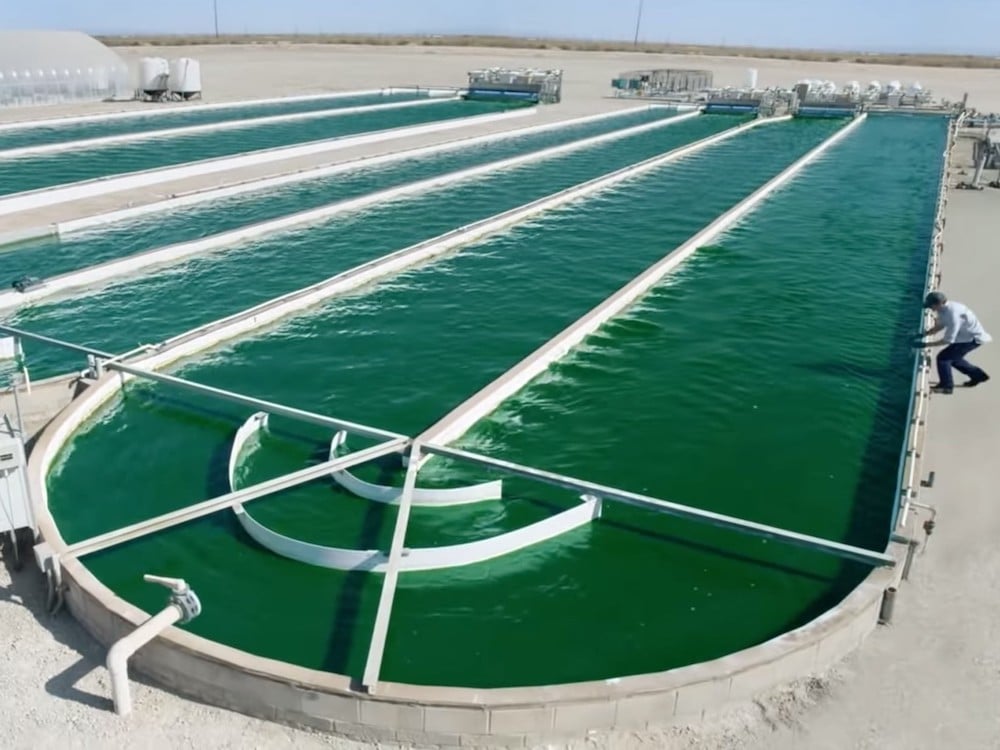Biofuels made from algae have had their time in the sun, with years of highly publicized investments from fossil fuel companies, such as Exxon and Chevron, and studies showing potential for the energy source to replace fossil fuels. New research suggests, however, that biodiesel derived from microalgae may actually emit more carbon during production and use than petroleum-based diesel.
The biofuel’s poor performance is due to its manufacturing process, which requires more energy than the final product can produce.
As a group, biofuels — fuels made from renewable natural resources, such as plants, coffee grounds and vegetable oils — emit less carbon dioxide into the environment than fossil fuels. And microalgae, phytoplankton that grow in fresh and salt water, have qualities that made them particularly hopeful candidates.
Some phytoplankton produce up to 30 times more energy than other biofuels because they contain large quantities of fats that can be converted into fuel.
And phytoplankton grow rapidly, flourishing in a wide variety of climates and habitats — including in wastewater — and don’t require the diversion of food into fuel production, unlike corn, soybeans and other biofuel crops. Yet these advantages alone don’t translate to energy efficiency.
Previous research has looked at improving the energy efficiency of extracting fat from microalgae or genetically engineering types of phytoplankton that produce greater quantities of fats. But these efforts have relied mostly on lab-based studies conducted with small amounts of algae — a far cry from what it takes to produce biofuels in the real world.
In this new study, Tom Bradley, director of Decerna, a U.K.-based consulting company that specializes in low-carbon economies, and his co-authors partnered with a facility to produce biofuel from phytoplankton at an industrial scale. They grew the microalgae under artificial light on a diet of glycerol, yeast and other chemicals, and then extracted the fats and converted the usable ones into biodiesel.
Throughout the process, the study authors collected data on the energy demands of each step, then tallied the carbon emissions from burning the final product. The result is a more realistic evaluation of the real-world environmental impacts, says Bradley.
The authors found that the environmental costs of building the infrastructure to grow and process the algae, and of producing the electricity to run the operation, more than counterbalance the environmental savings of burning the biofuel.
When Bradley began this research more than a decade ago, he was extremely hopeful about the promise of microalgae. But he no longer sees it as a strong choice. “Microalgae-derived biodiesel cannot outperform conventional diesel without a significant breakthrough,” he says.
Energy giant Exxon appears to share Bradley’s concerns. The company began quietly withdrawing from its multimillion-dollar, 14-year algae research efforts in December 2022.
However, Xavier Mayali, an algae biofuel researcher at Lawrence Livermore National Laboratory in California who was not involved in the study, thinks that microalgae could still produce a viable alternative fuel — with some key tweaks.
Mayali says that growing phytoplankton outdoors with natural light and finding a less energy-intensive method of powering production would help microalgae-based diesel compete.
Bradley agrees.
“This isn’t to say wide-scale production of microalgae biofuels will never happen, but there certainly needs to be some transformational changes in technology,” he says.
This article first appeared in Hakai Magazine. The Tyee urges you to check out this excellent online magazine about coastal science and societies. ![]()
Read more: Energy, Environment

















Tyee Commenting Guidelines
Comments that violate guidelines risk being deleted, and violations may result in a temporary or permanent user ban. Maintain the spirit of good conversation to stay in the discussion and be patient with moderators. Comments are reviewed regularly but not in real time.
Do:
Do not: